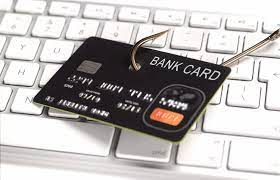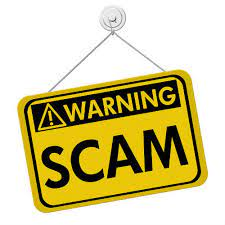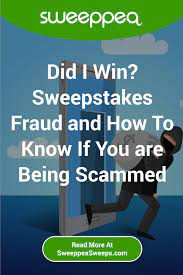How to Avoid Sweepstakes Scams: A Comprehensive Guide
Sweepstakes are a fun and exciting way to win prizes, but they can also be a trap for unsuspecting consumers. Sweepstake scams are becoming increasingly common and can cause financial loss and emotional distress. This article will provide a comprehensive guide on avoiding sweepstakes scams and protecting yourself from fraudulent activities awarding sweepstakes prizes.
Understanding Sweepstakes Scams Sweepstakes scams require you to pay a fee or purchase to enter or claim a prize. Legitimate sweepstakes do not require any payment to enter or win, and making a purchase will not increase your chances of winning. Sweepstake scams often use deceptive tactics to lure you into paying a fee or purchasing. They may claim you have won a large sum of money or a luxury item, but you must first pay a processing fee or taxes to claim your prize.
Identifying Sweepstakes Scams Several signs can help you identify sweepstakes scams. A sweepstake is likely a sweepstakes scam artists or if it requires a fee to enter or claim a prize. Other symptoms of sweepstakes scams include:
The sponsor of the sweepstakes is unknown or unfamiliar
The sweepstakes require you to provide personal information, such as your social security number or your bank account information and details
The sweepstakes claim that you have won a prize, but you do not win the prize notification and do not remember entering the sweepstakes
The sweepstakes require you to attend a sales presentation or seminar to claim your prize

Protecting Yourself from Sweepstakes Scams:
You can take several steps to protect yourself from sweepstakes scams. These include:
Research the lottery or sweepstakes beforehand before entering. Check the lottery prize sponsor’s reputation and look for reviews or complaints online.
Do not provide personal information unless you are sure the sweepstakes is legitimate.
Do not pay fees or make purchases to enter or claim a prize.
Be wary of unsolicited phone calls or emails claiming you have won a prize.
Trust your instincts. If a sweepstake sounds too good to be true, it probably is.
Reporting Sweepstakes Scams
If you believe you have been a victim of a sweepstakes scam, it is essential to report it to the appropriate authorities. You can file a complaint with the Federal Trade Commission (FTC) or the Better Business Bureau (BBB). In addition, contact your state attorney general’s office or local consumer protection agency.
Sweepstake scams are a growing problem that can cause financial and emotional harm. You can avoid becoming a victim by understanding how sweepstakes scams work and protecting yourself. If you believe a sweepstake scam has targeted you, immediately report it to the appropriate authorities. Then, stay informed and stay vigilant to protect yourself from sweepstakes scams.

How to Find Legitimate Sweepstakes
While there are many sweepstakes scams out there, there are also legitimate sweepstakes that you can enter without fear of being scammed. Here are some tips on how to find legitimate sweepstakes:
Look for sweepstakes sponsored by well-known companies or government organizations first. These are more likely to pay money to be legitimate.
Check the sweepstakes rules to see if they require a purchase to enter or claim a prize. Legitimate sweepstakes prizes do not require a purchase.
Use reputable sweepstakes websites or apps like Sweepstakes Advantage or Sweepstakes Fanatics.
Look for sweepstakes with a low number of entries. These may have better odds of winning.
What to Do if You Have Been Scammed
If you have fallen victim to a sweepstakes scam, there are several steps you can take to try to recover your prize money or prevent further damage. These include:
Contact your bank or credit card company to dispute any charges related to the scam.
File a complaint with the FTC or BBB.
Contact your state attorney general’s office or local consumer protection agency.
Consider getting a credit freeze or fraud alert to prevent further fraudulent activity.
The Importance of Education
Education is critical to preventing sweepstakes scams. Educating yourself and others about the signs of sweepstakes scams and how to protect yourself can reduce the number of victims and prevent further damage. Share this article with your friends and family to help spread awareness about sweepstakes scams.
Sweepstake scams can devastate victims, but you can avoid becoming a victim by understanding how they work and taking steps to protect yourself.
Remember to research before entering sweepstakes, and never provide personal information or pay a fee to enter or claim a prize. If you fall victim to a sweepstakes scam, immediately report it and prevent further damage.
Stay informed and vigilant to protect yourself from sweepstakes fraud and lottery scams everywhere.

Common Sweepstakes Scams There are several joint sweepstakes scams that you should be aware of to protect yourself from becoming a victim. These include:
“Congratulations, You Have Won!” Scam:
In this scam, you receive a call or email claiming you have won a lottery ticket, a large sum of money, or a valuable prize. You win notice.
However, before claiming your bonus, you are asked to pay a fee or provide personal information. Legitimate sweepstakes do not require payment or personal information to claim a prize.
Foreign Lottery Scam:
You receive a letter or email from a foreign country claiming you have won a foreign lottery. However, you are asked to pay a fee or provide personal information to claim your prize. Legitimate foreign lotteries often do not ask for payment or personal information to claim a prize.
Fake Charity Sweepstakes:
In this charity scam, you receive a call or email claiming to be from a charity organization. They may have national sweepstakes board offer a prize or request a donation in exchange for an entry into the sweepstakes. However, the charity may be dishonest, and the award may not exist. Always research the charity before donating or entering sweepstakes.
Phishing Scam:
In this scam, you receive an email or text message claiming to be from a legitimate company, such as a bank or online retailer. The message may ask you to click a link or provide personal information, such as your login credentials or credit card number. However, the news is fake and is designed to steal your personal information. Always verify the message’s legitimacy before clicking links or providing personal information.
How to Protect Yourself
To protect yourself from sweepstakes scams, follow these tips:
- Do not provide personal information to enter sweepstakes or claim a prize, such as your social security or credit card number.
- Do not pay a fee to enter sweepstakes or claim a prize. Legitimate sweepstakes do not require payment.
- Do not believe claims that you have won a prize without entering sweepstakes. Legitimate sweepstakes require an entry.
- Research the sweepstakes or company before entering or providing personal information.
- Be wary of unsolicited calls, emails, or text messages. Legitimate Sweepstakes will not contact you without your consent.
- Please keep your personal information secure by using strong passwords and not sharing them with others.
By following these tips and being aware of joint, sweepstakes, and lottery scams, you can protect yourself from becoming a victim.
In conclusion, sweepstakes can be a fun and exciting way to win prizes, but it’s essential to be aware of the potential risks and scams. By understanding how real sweepstakes work and following the tips for protecting yourself, you can safely participate in legitimate sweepstakes, win notifications and avoid falling victim to scams.
If it sounds too good to be true, it probably is. Don’t let the promise of a large sum of money or a valuable prize cloud your judgment. Take the time to research the sweepstakes and company before entering or providing any personal information.
Stay safe and happy sweeping!

Additional Resources
For more information on sweepstakes scams and how to protect yourself, here are some additional resources:
- Federal Trade Commission (FTC): The FTC provides information on joint sweepstakes scams and how to avoid them. Visit their website at www.consumer.ftc.gov/articles/0199-prize-scams to learn more.
- Better Business Bureau (BBB): The BBB provides a list of sweepstakes and contests that are currently running and have been verified as legitimate. You can visit their website at www.bbb.org to search for sweepstakes and contests.
- Sweepstakes Law: If you are running sweepstakes or contests, it’s essential to understand the legal requirements. The Sweepstakes Law website provides information on the legal requirements for running sweepstakes or contests. Visit their website at www.sweepstakeslaw.com to learn more.
We hope this article has provided valuable information on sweepstakes and how to take legitimate sweepstakes sponsors to avoid scams. Always stay informed and aware when participating in sweepstakes, and never give out personal information or pay a fee to claim a prize.
CoopBusiness is a revolutionary cooperative business-building platform that empowers individuals to become entrepreneurs, business owners, and financially independent.
As a member, you’ll receive top-level business mentorship, access to our proprietary business systems, and the opportunity to access the funds you want to turn your business ideas into reality.